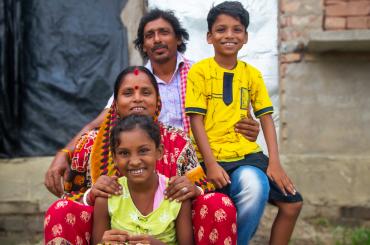

Seema Jayachandran is a Professor of Economics and Public Affairs at Princeton University. Her main research area is development economics. She serves as Co-Chair of the Gender Sector for the Abdul Latif Jameel Poverty Action Lab, Co-Director of the National Bureau of Economic Research program in Development Economics, and on the Board of the Bureau for Research and Economic Analysis of Development. She has a PhD in economics from Harvard University, a master’s degree in physics and philosophy from the University of Oxford where she was a Marshall Scholar, and a bachelor’s degree in electrical engineering from MIT. Prior to joining Princeton, she was a faculty member at Stanford University and Northwestern University.
Recent work by Seema Jayachandran
-

Closing loopholes can dramatically improve financial incentives for conservation
Paying landowners to conserve their forested land is a leading approach to prevent deforestation. Evidence from Mexico shows that smarter contract design can more than quadruple cost-effectiveness.
Published 22.01.25
-

Free contraception had no impact on birth rates in Burkina Faso
Providing free access to all modern contraceptive products for three years in local public health centres in rural Burkina Faso had no detectable effect on birth rates, suggesting that fertility levels are in line with how many children families want...
Published 24.07.24
-

Ten facts about son preference in India
Gender gaps in child health have narrowed in India, but important gaps remain both for girls and younger brothers, and sex-selective abortion poses a new challenge
Published 04.12.23
-

The economics of conservation in low- and middle-income countries
What have we learned about the economics of conservation? How can policymakers encourage conservation in low-income settings?
Published 04.10.23
-

Does empowering women to communicate at home improve child health outcomes?
Adding communication skills training to health classes for mothers in Uganda increased women’s voice in household decisions but not sufficiently to generate transformative impacts on most child health outcomes
Published 11.09.23
-

Reducing air pollution: Evidence from payments to reduce crop burning in India
Programmes that pay farmers not to burn crop residue face challenges with compliance, but contracts that include partial upfront payments can help
Published 28.03.23
-

Mother-father differences in spending on children: Evidence from Uganda
Mothers and fathers spend differently on daughters relative to sons, which can perpetuate the benefits of empowering women today
Published 15.03.23
-

Reshaping gender attitudes: Evidence from schools in India
Integrated school-based interventions to advance gender equality can achieve lasting changes in regressive attitudes and behaviours
Published 07.07.21
-

Can kindergarten combat learning inequality?
Participation in early childhood education programmes can lead to improved and lasting learning outcomes for disadvantaged children
Published 09.02.21